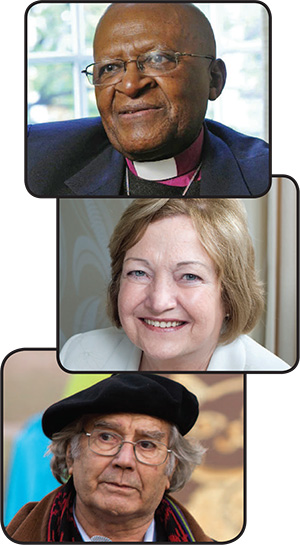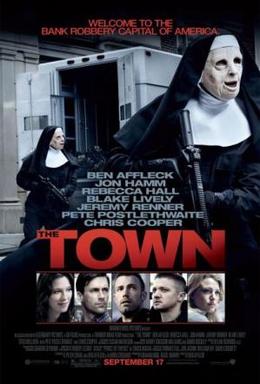Click on the headline to link to a Wikipedia entry for jug bands to give a little flavor to this sketch.
CD Review
Jug Band Extravaganza, Jim Kweskin, Geoff Muldaur, Maria Muldaur, John Sebastian and guest, Folk Era Records, 2010
It is a fact, a known historical fact, maybe unnoted in the schoolboy history books but a fact nevertheless, that jug music was invented in 1961, make that the night of October 23, 1961, in the cellars of 47 Mount Auburn Street, Cambridge, Massachusetts 02139. And that invention was made by one Fitz-Hugh Montgomery, previously a graduate student in anthropology at Harvard University, and just then, well, just then between things, and working as a dishwasher/general roustabout at the establishment located above those cellars. That night he stumbled upon this world-historic fact-the empty apple cider jugs piling up down there having previously been emptied into folk coffee mugs and awaiting salvation in next trash pick-up made sounds when the cellar windows were opened and the wind was able to reach their small mouths. Made to one Fitz-Hugh Montgomery’s ear music. Serious new wave-breaking music.
Now like all great inventions this was not sheer accident because, as fate would have it, Fitz-Hugh had been fretting over the problem of the wasteland of the contemporary music scene since he dropped out of that anthropology program to seek a newer world, a world as an easy rider cosmic biker in this wicked old universe (Harley, naturally, not some old British import like a Vincent Black Lightning, Christ no).
He fretted over the choices, the dish-water choices (no pun intended), that he heard wherever he turned musically. Stuff, trash stuff, like Oh, Donna, Mack The Knife and Running Bear that filled the radio airwaves ever since Elvis went in the tank, Jerry Lee got caught up in his kissing cousin love thing, and Chuck got put away for messing with Mister’s women. Worse the Henry Mancini and Percy Faith orchestra sleep stuff, and also that old-time Ellington Taking The A-Train jazz stuff. Hell, even the stuff upstairs, that earnest plaintive Kumbaya and nasal twangy the times-are-a-changing and something is blowing-in-the-wind folk stuff was getting on his nerves. More importantly, no, most importantly, there was no music alive to help him get his easy rider mama, Larissa Bell, in the mood, and if I need to tell you the mood for what then please go back to listening to Mister Percy Faith and his Orchestra, to “do the do (see the previous part of this sentence)” with her easy rider man. Thus jug.
Some have argued over the years, like those infernal folk archivists Alan Lomax and Pete Seeger, years that the jug has been around musically for a long time and they point to Gus Cannon, the one hundred and one sheik bands (most famously the Mississippi Sheiks) and the like in the 1920s. Hell, those guys were using soda bottles, ball jars, or something, not the deep resonance of the apple cider jug. Kid’s stuff. Others have argued, like the music critics for The NewYorker and The New York Review Of Booksrespectively, that they hear some jug in Beethoven’s Fifth. Jesus, they either had a fifth or should take the fifth. And on and on it goes. Strictly error, serious error fit for those academic types. You heard the real deal and heard it here first.
And what you will also hear is that like all great inventions there are those who are always trying to get their grimy little mitts on the next best thing. And that was the case here with jug as the previously nowhere, nothing Jim, Geoff, Maria, Fritz, Mel Band (very snappy band name, right) interlopers that headlined upstairs one night heard those cellar sounds, grabbed an empty apple cider jug from a table and morphed into Jim Kweskin and the Jug Band (another snappy band name, right, but what do you expect of thieves) and ran with the thing to the heights.
Ran with it for a time until, like all thing musical, it ran out of air, or ran into hubris, or… well you fill in the or. As so the jug fell dormant until the inevitable revival, the inevitable 1960s folk minute revival revival, reared its ugly head and morphed into this album. The older but wiser, raised the kids or raised hell, reflection that in that 1960s night to be, as Wordsworth said, “to be young was very heaven,” needed to break out to a new generation. So the old now AARP-worthy gang got together in ‘Frisco, after much prodding, procrastination and many snafus, and delivered up once more time
that old- time jug religion for the aficionados, filled with Sweet Sue, Richland Woman, Wild Ox Moan, Stealin Stealin moments.
And Fitz-Hugh Montgomery? He later went on to find some nails in that old cellar, and some wood, to make the very first nail chime instrument known to humankind, also not duly noted by history. But remember here is where you got the “skinny” on the who, when, where, what and why of the jug. And that in the beginning …was the jug. Oh yah, and check this album out to prove my point.






